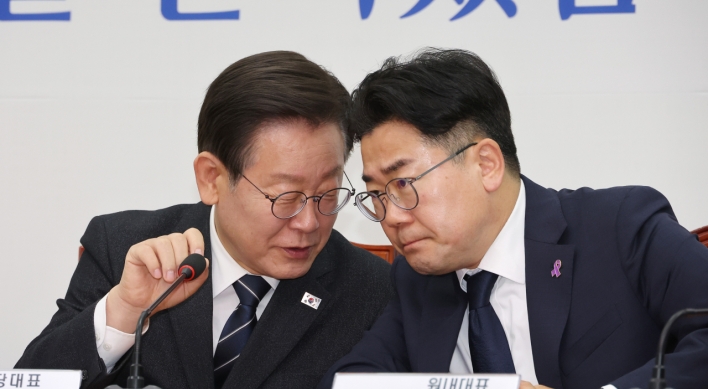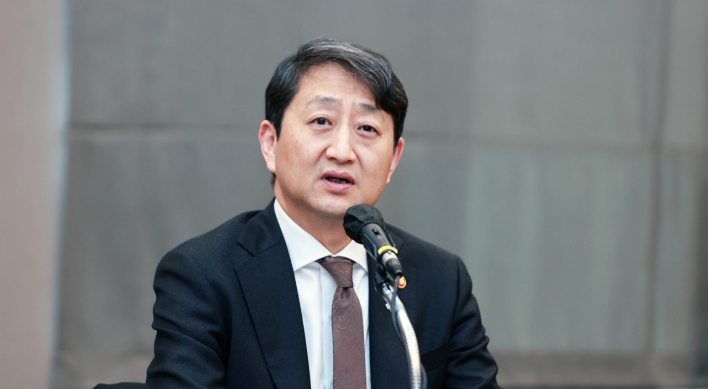North Korea warned Japan against selling a property in Tokyo that serves as the North's de facto embassy during their first high-level talks in more than a year, the chief Pyongyang delegate said Tuesday, adding that there would be "no need" for progress in bilateral talks unless Japan addresses the issue.
The strongly worded remarks by Song Il-ho, North Korea's ambassador in charge of talks to normalize relations with Japan who led the two-day talks that ended on Monday in Beijing, suggested that the two sides ended the Beijing talks apparently without even starting serious discussions on key pending issues, including the North's admitted abduction of more than a dozen Japanese citizens decades ago.
A Tokyo court ruled last week that a Japanese real estate firm could buy the property of the General Association of Korean Residents in Tokyo, known as Chongryon, which represents North Korean interests in Japan. The Chongryon property has been put up for auction after being seized over unpaid debts.
"The issue of the Chongryon building is one of fundamental matters in the progress of North Korea-Japan relations," Song told reporters before leaving for Pyongyang at the Beijing airport. "Unless this issue is resolved, there would be no need for making progress in North Korea-Japan relations."
North Korea expressed "strong concerns" over the Chongryon property, describing the ruling by the Tokyo court as "unfair."
It was not immediately known whether the two sides put the abduction issue on the agenda of the Beijing talks, but Song said both sides agreed to hold another round of talks.
"Both sides reached a common understanding to continue to hold talks in the future," Song said, although a date for the next round of talks has not been set.
During the Beijing talks, both sides discussed "comprehensive issues in a serous manner," Song said, adding that the Japanese side, led by Junichi Ihara, chief of the Asian and Oceanian affairs bureau at Japan's foreign ministry, was "very cooperative."
A key pending issue between the two countries is North Korea's admitted kidnapping of more than a dozen Japanese citizens in the past. North Korea has said, however, the issue was settled.
North Korea and Japan agreed to resume the government-level talks during their informal gathering in China earlier last month when Red Cross officials of both sides met to discuss the repatriation of the remains of Japanese nationals who died in the North during World War II.
In 2002, North Korea admitted to abducting 13 Japanese nationals in the 1970s and '80s. The North then let five of them return home but said eight others had died, though Japanese officials believe that some of them are still alive.
One of those Japanese who North Korea claimed to have died is Megumi Yokota, who was abducted in 1977 at the age of 13. Earlier this month, North Korea allowed the parents of Yokota to meet her 26-year-old daughter in the Mongolian capital of Ulan Bator.
The Beijing contact comes as North Korea takes an ambivalent approach to the outside world.
Last week, the United Nations Security Council condemned North Korea for test-firing two medium-range ballistic missiles in violation of its ban on such activities. Angered by the U.N. condemnation, North Korea on Sunday vowed it would not rule out conducting a "new form" of nuclear test, a likely reference to a uranium-enriched device.
On Monday, North Korea conducted a live-fire drill near the tense Yellow Sea border, with about 100 artillery shells falling into South Korean waters, prompting the South to return fire into the North's waters.
North Korea and Japan have never had diplomatic ties, and the abduction issue has long been a key stumbling block in normalizing their bilateral relations. (Yonhap)



![[AtoZ Korean Mind] Does your job define who you are? Should it?](http://res.heraldm.com/phpwas/restmb_idxmake.php?idx=644&simg=/content/image/2024/05/06/20240506050099_0.jpg&u=)














![[K-pop's dilemma] Is Hybe-Ador conflict a case of growing pains?](http://res.heraldm.com/phpwas/restmb_idxmake.php?idx=642&simg=/content/image/2024/05/07/20240507050746_0.jpg&u=)